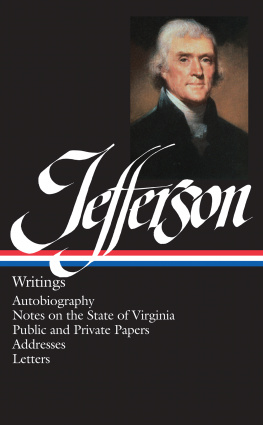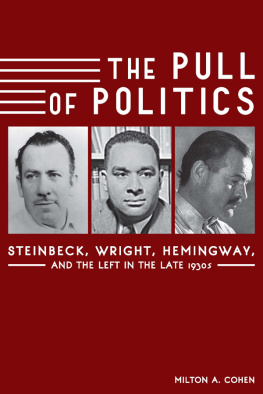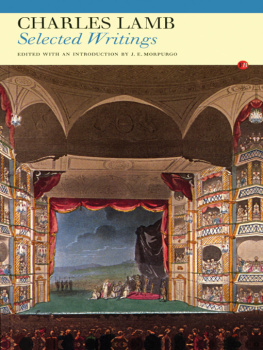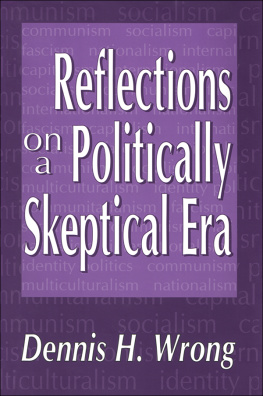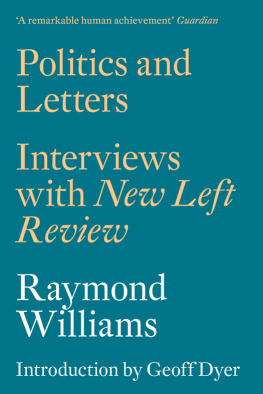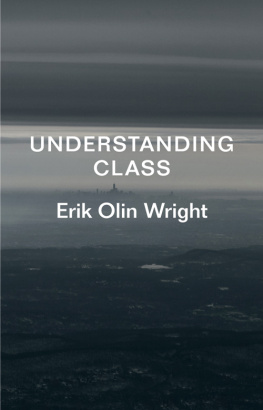The Politics of Truth
The Politics of Truth
SELECTED AND INTRODUCED BY JOHN H. SUMMERS
Selected Writings of C. Wright Mills


Oxford University Press, Inc., publishes works that further
Oxford Universitys objective of excellence
in research, scholarship, and education.
Oxford New York
Auckland Cape Town Dar es Salaam Hong Kong Karachi
Kuala Lumpur Madrid Melbourne Mexico City Nairobi
New Delhi Shanghai Taipei Toronto
With offices in
Argentina Austria Brazil Chile Czech Republic France Greece
Guatemala Hungary Italy Japan Poland Portugal Singapore
South Korea Switzerland Thailand Turkey Ukraine Vietnam
Copyright 2008 by Oxford University Press, Inc.
Published by Oxford University Press, Inc.
198 Madison Avenue, New York, NY 10016
www.oup.com
Oxford is a registered trademark of Oxford University Press
All rights reserved. No part of this publication may be reproduced, stored in a retrieval system, or transmitted, in any form or by any means, electronic, mechanical, photocopying, recording, or otherwise, without the prior permission of Oxford University Press.
Library of Congress Cataloging-in-Publication Data
Mills, C. Wright (Charles Wright), 19161962.
The politics of truth : selected writings of C. Wright Mills
/ selected and introduced by John H. Summers.
p. cm.
Includes bibliographical references and index.
ISBN 978-0-19-534305-2 (hardcover)ISBN 978-0-19-534304-5 (pbk.)
1. Social sciences. 1. Summers, John, 1971. II. Title.
H83.M493 2008 301.092dc22
[B] 2008011427
9 8 7 6 5 4 3 2 1
Printed in the United States of America
on acid-free paper
For Roy Rosenzweig
ACKNOWLEDGMENTS
I am grateful to Richard Gillam, Kathryn Mills, Nikolas Mills, Pamela Mills, George Scialabba, and Anna Summers for advice and assistance. All writings are reprinted by permission of the Estate of C. Wright Mills.
PREFACE
C. Wright Mills was the most famous American sociologist in the world when he died on March 20, 1962. Yet no biography worth reading has appeared in the four decades since then, nor has a reliable apparatus of scholarship matured around his writings to guide commentary on his legacy. This is the first new collection since 1963; it is only the second collection to appear in English.
The possibilities are as abundant as the collection is necessary. Millss contemporaries knew him as the author of long books, but also as an aphorist, essayist, reviewer, pamphleteer, and public lecturer. Books, he once commented, are simply organized releases from the continuous work that goes into them. The complete bibliography of his published writings runs to more than 200 entries. Add the unpublished writings from his continuous work and it runs past 350 entries.
Of the essays, interviews, speeches, and public letters selected for this collection, Mills published all but one in periodicals such as Dissent, Evergreen Review, Harpers, The Nation, New Left Review, Saturday Review, and politics. He wrote them for liberally educated, politically aware readers in Europe and America. The same intention accompanies their republication.
What is missing? In 1947, Mills drew up a proposal for a collection of his writings and titled it The Politics of Truth, and Other Essays. His proposal included four technical essays in the sociology of knowledge: Language, Logic, and Culture (1939); Situated Actions and Vocabularies of Motive (1940); Methodological Consequences of the Sociology of Knowledge (1940); and The Professional Ideology of Social Pathologists (1943). These essays would have been included here but for their availability in digital form to the readers most likely to be interested: the academic social scientists for whom he wrote them. Likewise, the series of autobiographical letters that Mills intended to publish in Contacting the Enemy belongs to the theme but not to this collection. Read them in C. Wright Mills: Letters and Autobiographical Writings, edited by Kathryn Mills, with Pamela Mills, and published by the University of California Press in 2000.
On December 30, 1959, Mills signed a contact with Oxford University Press for The Cultural Apparatus, or The American Intellectual. Tempting though it is to publish fragments from this unfinished manuscript, neither Mills nor his literary executor, William Miller, left a statement of intention. In such cases, it is best to honor the silence by taking the side of discretion.
CONTENTS
The Politics of Truth
Master Tasks for Intellectuals
(1) To define the reality of the human condition and to make our definitions public.
(2) To confront the new facts of history-making in our time, and their meaning for the problem of political responsibility.
(3) Continually to investigate the causes of war, and among them to locate the decisions and defaults of elite circles.
(4) To release the human imagination, to explore all the alternatives now open to the human community by transcending both the mere exhortation of grand principle and the mere opportunist reaction.
(5) To demand full information of relevance to human destiny and the end of decisions made in irresponsible secrecy.
(6) To cease being the intellectual dupes of political patrioteers.
C. Wright Mills
Its been said in criticism that I am too much fascinated by power. This is not really true. It is intellect I have been most fascinated by, and power primarily in connection with that. It is the role of ideas in politics and society, the power of intellect, that most fascinates me as a social analyst and as a cultural critic.
C. Wright Mills
BEFORE CHARLES WRIGHT MILLS turned twelve, his family moved through five Texas cities and changed residences eight times. For weeks at a spell his father, a traveling insurance agent, left him alone with his mother and older sister. The restless isolation he felt in his boyhood never left him, nor did the special quality of ambition he discovered in his first sustained reading: a collection of little blue books that belonged to his father.
The title was Applied Psychology. The author, Warren Hilton, suggested in twelve volumes of epigrams and examples how to turn the mind into an independent, causal agency. Hilton stressed the plasticity of human nature, the infinite dialectical growth available to any untutored intelligence, properly motivated. Applied Psychology was a knock-off edition of the American philosophy of achievement, and Charles read all 1,100 pages in the spring of 1934, as he prepared to graduate from Dallas Technical High School.
Eager to report the powers stirring within him, he began a personal journal. Then, at the end of the summer, he declared his independence in a letter to the editor of the Dallas Morning News. The city was a haven for religious fundamentalists. His mother had baptized him in the Catholic Church, and it was she who had persuaded him, when they lived in Sherman and his rebellion was exasperating his teachers, to serve as an altar boy in the local parish. In his letter, however, he squelched the moderate deception that no choice need be made between reason and revelation and left no doubt where his allegiance lay in the conflict.
Next page


